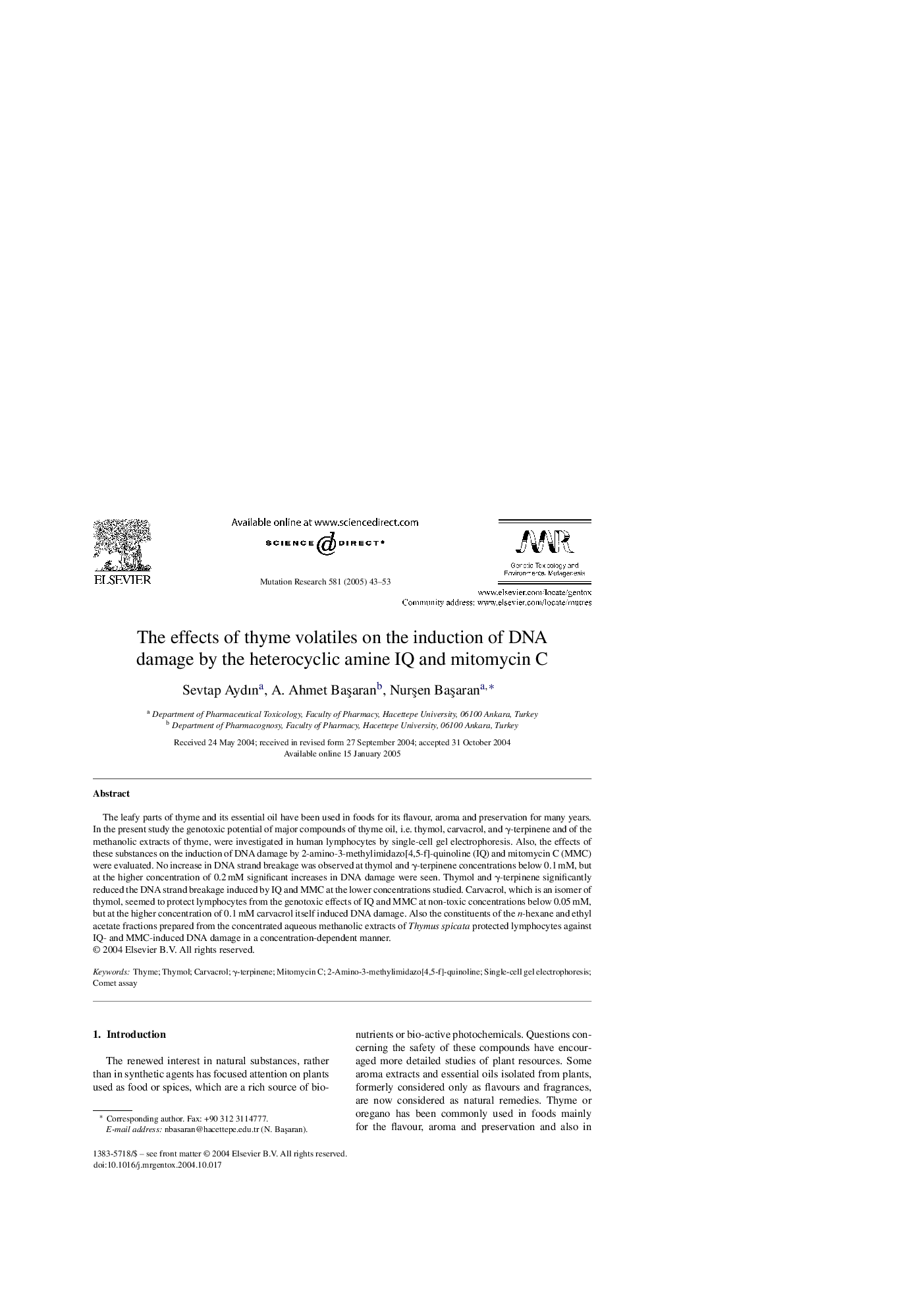| Article ID | Journal | Published Year | Pages | File Type |
|---|---|---|---|---|
| 9910151 | Mutation Research/Genetic Toxicology and Environmental Mutagenesis | 2005 | 11 Pages |
Abstract
The leafy parts of thyme and its essential oil have been used in foods for its flavour, aroma and preservation for many years. In the present study the genotoxic potential of major compounds of thyme oil, i.e. thymol, carvacrol, and γ-terpinene and of the methanolic extracts of thyme, were investigated in human lymphocytes by single-cell gel electrophoresis. Also, the effects of these substances on the induction of DNA damage by 2-amino-3-methylimidazo[4,5-f]-quinoline (IQ) and mitomycin C (MMC) were evaluated. No increase in DNA strand breakage was observed at thymol and γ-terpinene concentrations below 0.1 mM, but at the higher concentration of 0.2 mM significant increases in DNA damage were seen. Thymol and γ-terpinene significantly reduced the DNA strand breakage induced by IQ and MMC at the lower concentrations studied. Carvacrol, which is an isomer of thymol, seemed to protect lymphocytes from the genotoxic effects of IQ and MMC at non-toxic concentrations below 0.05 mM, but at the higher concentration of 0.1 mM carvacrol itself induced DNA damage. Also the constituents of the n-hexane and ethyl acetate fractions prepared from the concentrated aqueous methanolic extracts of Thymus spicata protected lymphocytes against IQ- and MMC-induced DNA damage in a concentration-dependent manner.
Keywords
Related Topics
Life Sciences
Biochemistry, Genetics and Molecular Biology
Cancer Research
Authors
Sevtap Aydın, A. Ahmet BaÅaran, NurÅen BaÅaran,
